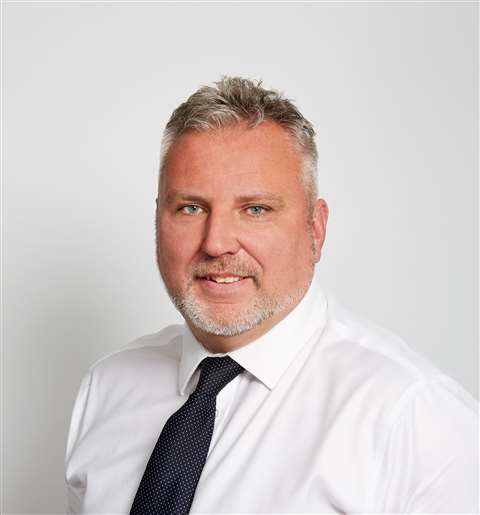Rental and the ‘three Ps’ of sustainability
07 March 2022
The ‘three Ps’ of business sustainability are the planet, people and profit. In this series of articles, Andy Wright, the CEO of Sunbelt Rentals UK, considers the first of these, and the need for collaboration between OEMs, rental companies and equipment users.

Everyone is aware of the climate crisis caused, at least in part, by the increase in carbon emissions as industrialisation has grown globally over the last few centuries, and over the last 100 years or so. It’s primarily a problem created by humans, and we need to act now to prevent a catastrophic situation in the future.
The rental industry is not immune from this and consequently we stand at a major crossroads in the evolution of the sector if we are to play our part in repairing the damage that we have inflicted on the planet.
So, how can we do this?
Equipment rental: business ecosystem
The rental sector, in its simplest form, has an ecosystem that comprises a client or end user, a manufacturer of product and a rental business that provides the conduit between both ends of the system.
To achieve a successful outcome, each component within this ecosystem needs to achieve satisfactory financial returns and must all meet their goals and objectives.
This has never been more important than now, as we seek to transition towards new lower or zero carbon technologies. To achieve this, all three parts of the ecosystem must actively collaborate.
We know that the rental industry is a fundamental component within the circular economy and is critical in supporting this transition to lower carbon. How do we know this?
The European Rental Association (ERA) has done some very detailed work around this.
Carbon emissions and equipment life cycle
The ERA’s life cycle assessment report (LCA) around a mini excavator is helpful in bringing this point to life.
We know, through analysis, that in Sunbelt Rentals, globally, this type of asset is rented, typically, to 20 unique customers on average each year, and each excavator produces 3,250 kg of CO2 from embodied emissions.
Embodied emissions are those created during the production and disposal phases of its life cycle.
The ERA LCA model concludes that half of all customers with a requirement for equipment would buy if the option to rent did not exist, resulting in an annual rental option saving 32,500 kg of CO2 equivalent. That is, 10 customers not buying at 3250kg of CO2 each.
We have around 11,000 mini excavators across Sunbelt, which are therefore potentially saving 357,500 metric tonnes of embodied CO2 equivalent.
To put this in a way we can all understand, this is the equivalent of the annual emissions of 77,000 passenger vehicles saved.
Scale this calculation up globally and it’s clear that the sector does make a very significant difference, even without the introduction of the new zero carbon technologies being developed.
The transition to Net Zero
That said, the transition to zero or lower carbon is fraught with challenges, many of which rely on the eco system remaining in balance.
What are the challenges?
First, in which technology should we invest? Which will win the race to provide credible zero carbon operation?
This a problem for OEMs and rental companies alike, who are deciding whether to invest in electric, solar, hybrid, stage 5, hydrogen, or all of them.
Second, how do we match OEM supply with end user demand? As we transition rental fleets to sustainable technologies, will customer demand increase faster than manufacturers can build, or faster than rental companies can fund the purchase of the equipment?
Ironically, it is the carbon producing old technologies that will be generating the revenues to pay for this technology shift, in many instances, reinforcing the point that the ecosystem needs to be in balance to ensure an orderly transition.
Third, will the technology and infrastructure develop quickly enough to be able to deliver the whole range in a clean energy way? Will the investments needed to create the infrastructure that supports the newer technologies happen quickly enough?
How much more power will be needed to operate larger battery powered equipment fleets? And how will customers re-charge them at site, in a way that doesn’t impact on getting the job done?
In some ways there are currently more questions than answers and it’s only by the whole industry working together collaboratively, that we will be able to satisfactorily answer them.
What is clear though, is that the rental sector has a major role to play in this seismic change and it needs to step up to the plate and do what it can to make the change happen and not just for commercial reasons but because it’s the right thing to do.
|
About the Author 
Andy Wright is the CEO of Sunbelt Rentals UK and an experienced senior executive in the rental equipment sector. His career began in 1989, leading to roles including Managing Director Northern Europe at Aggreko, International Chief Executive of Lavendon Group and Managing Director UK & Ireland at Speedy Services. |
STAY CONNECTED



Receive the information you need when you need it through our world-leading magazines, newsletters and daily briefings.
CONNECT WITH THE TEAM







